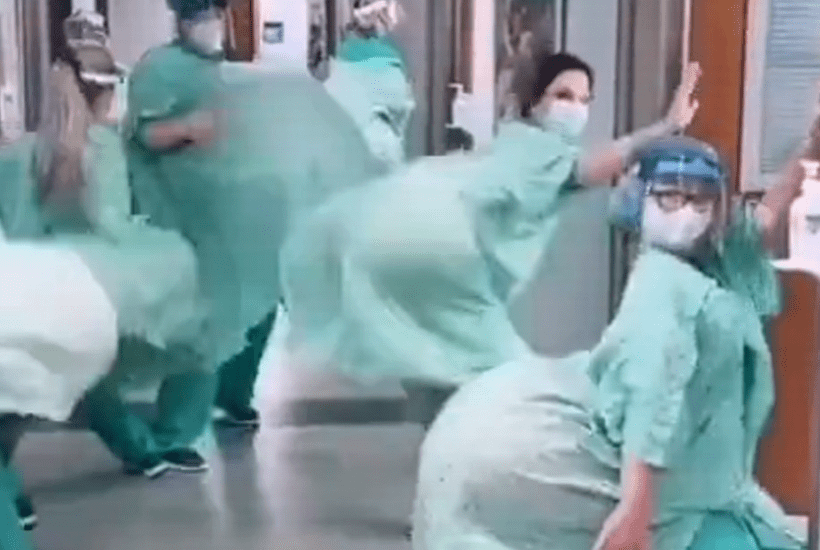Over the past couple of months, the world has seen some heartbreaking scenes from hospitals hit hard by the COVID-19 pandemic. With some health systems being overwhelmed and many close to it, healthcare workers in these centres have come under particular stress. Over a hundred have died in Italy alone. Nobody knows how many are dead in Communist China. Emergency and intensive care departments from New York to New Orleans to London have been swamped with cases. Many HCWs in busy areas have self-isolated and haven’t seen their families for weeks.
The world has responded with a generosity almost as overwhelming. They have been called heroes – and many of them are. In the Britain in particular, where their healthcare funding model attracts an almost religious devotion, praise for the National Health Services HCWs has been especially fervid, perhaps due to the NHS’s reported inadequacy in fulfilling its duty of care to the safety of HCWs due to protective personal equipment shortages. The UK has had some very stretched sectors across its hospital network and – at time of writing – over 26,000 deaths.
HCWs have been given free or cheap fast food, exclusive shopping hours at shops and even a Facebook group called “Adopt a healthcare worker” in the United States. It is heartening to see gratitude for a service. The latter has come under criticism for having been abused by people looking for free stuff, but you get that.
However, while displays of generosity and gratitude are laudable and a sign of a society that has not entirely lost its moral compass, spare a thought for those who have lost their jobs and businesses already due to the pandemic, with more yet to come. It must be particularly painful for that large group of people to see short music videos from the UK – and now Australia – depicting mostly nurses in choreographed dances on Facebook, YouTube and the China-controlled TikTok platform.
Generally, the response to the dances has been positive. I think this is mainly because the public has no idea how busy, or otherwise, hospitals have been. So the default assumption is that these hard-working HCWs have been able to snatch an hour here and there to conceive and choreograph the routine; we should all celebrate their morale-boosting gesture.
But here is the rub: some might be busy, but most in Australia are not that busy at all. More importantly, they all have jobs. A month ago HCWs were posing with signs saying “We stay at work for you. Please stay home for us” and an international outpouring of moral support ensued. Indeed, many Australians started distancing and staying home well before it was mandatory. But since the lockdowns began back then, hundreds of thousands of people in Australia alone have lost their jobs or shuttered their businesses. So to have stayed home with no income save a modest government subsidy (if qualified), then to see videos of the HCWs you stayed home for dancing around or trying to do a haka, must be hard to swallow.
Part of the impact of these dance videos is to give the impression that none of the HCWs are working hard, let alone overwhelmed. So they have a negative effect on morale of those nurses and doctors who really are swamped don’t have enough time to plan and rehearse their own routines, let alone sleep in the same bed as their spouse, working under fear of severe illness or even death. It also gives ammunition to the “just a flu” crowd of commentators, who take the dances as evidence for their own views.
Perhaps those who post these performances online might stop and think for a while on the videos’ negative consequences, as well as the feel-good factor and — yes –check their own privilege before doing it again.
Dr Michael Ayling is a specialist anaesthetist.
Got something to add? Join the discussion and comment below.
Got something to add? Join the discussion and comment below.
Get 10 issues for just $10
Subscribe to The Spectator Australia today for the next 10 magazine issues, plus full online access, for just $10.


























Comments
Don't miss out
Join the conversation with other Spectator Australia readers. Subscribe to leave a comment.
SUBSCRIBEAlready a subscriber? Log in